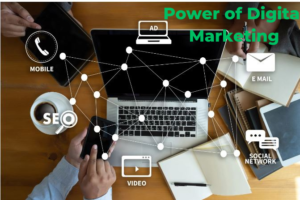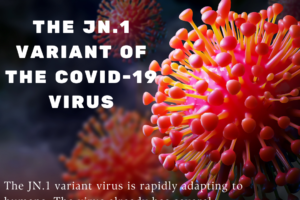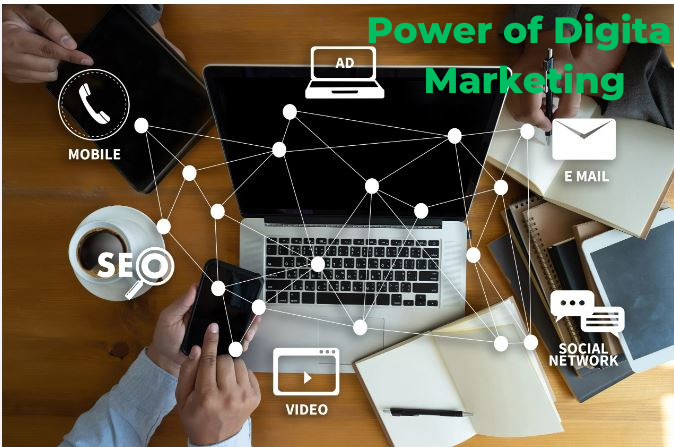Table of Contents
ToggleDigital Marketing A Comprehensive Guide to Success
Digital Marketing A Comprehensive Guide to Success
In this Comprehensive Guide we will explore the key Elements, Strategies and Best Practices of Digital Marketing that can help Businesses thrive in the Digital Landscape.
Table of Contents:
Understanding Digital Marketing
a. Definition and Scope of Digital Marketing
b. Evolution and Importance of Digital Marketing
Key Components of Digital Marketing
a. Search Engine Optimization (SEO)
b. Search Engine Marketing (SEM)
c. Social Media Marketing (SMM)
d. Content Marketing
e. Email Marketing
f. Influencer Marketing
g. Affiliate Marketing
h. Mobile Marketing
i. Video Marketing
j. Conversion Rate Optimization (CRO)
Developing a Digital Marketing Strategy
a. Setting Goals and Objectives
b. Identifying Target Audience and Buyer Personas
c. Conducting Competitor Analysis
d. Selecting Appropriate Digital Marketing Channels
e. Creating a Content Strategy
Search Engine Optimization (SEO)
a. On Page Optimization
b. Off Page Optimization
d. Local SEO
e. SEO Analytics and Reporting
Search Engine Marketing (SEM)
a. Pay-Per-Click (PPC) Advertising
b. Google Ads and Bing Ads
c. Keyword Research and Ad Copy Creation
d. Ad Campaign Management and Optimization
Social Media Marketing (SMM)
a. Social Media Platforms and Their Features
b. Building a Social Media Presence
c. Content Creation and Curation
d. Social Media Advertising
e. Social Media Analytics and Insights
Content Marketing
a. Creating Engaging and Valuable Content
b. Content Planning and Strategy
c. Content Distribution and Promotion
d. Content Measurement and Optimization
Email Marketing
a. Building an Email List and Segmentation
b. Creating Effective Email Campaigns
c. Automation and Personalization
d. Email Analytics and Metrics
Influencer Marketing
a. Identifying Relevant Influencers
b. Building Relationships with Influencers
c. Collaboration and Campaign Execution
c. Technical SEO
d. Measuring the Impact of Influencer Marketing

Mobile Marketing
a. Mobile-Friendly Website Design
b. Mobile Advertising and App Marketing
c. Location-Based Marketing
d. SMS and Push Notifications
Video Marketing
a. Creating Engaging and Shareable Videos
b. YouTube Marketing
c. Video Advertising and Promotion
d. Video SEO and Analytics
Conversion Rate Optimization (CRO)
a. User Experience (UX) Design
b. Landing Page Optimization
c. A/B Testing and Experimentation
d. Conversion Tracking and Analytics
Analytics and Reporting
a. Setting Up Website Analytics
b. Analyzing Key Performance Indicators (KPIs)
c. Data Visualization and Reporting Tools
d. Using Insights to Improve Marketing Strategies
Trends and Innovations in Digital Marketing
a. Artificial Intelligence (AI) and Machine Learning
b. Voice Search and Virtual Assistants
c. Chatbots and Conversational Marketing
d. Augmented Reality (AR) and Virtual Reality (VR)
Challenges and Ethical Considerations in Digital Marketing
a. Privacy and Data Protection
b. Ad Fraud and Click Fraud
c. Online Reputation Management
d. Ensuring Ethical Marketing Practices
Digital marketing has revolutionized the way Businesses connect with their audience and promote their products or services. By embracing the key components and strategies discussed in this guide, businesses can navigate the ever-changing digital landscape, increase brand visibility, and achieve their marketing objectives. Remember to adapt and innovate as new technologies emerge, analyze data to make informed decisions, and prioritize ethical marketing practices. With a well-rounded digital marketing approach, businesses can effectively reach their target audience, drive engagement, and achieve long-term success in the digital realm.
Digital Marketing A Comprehensive Guide to Success
I. Introduction to Digital Marketing
A. Definition and Scope of Digital Marketing
B. Evolution and Importance of Digital Marketing
II. Key Components of Digital Marketing
A. Search Engine Optimization (SEO)
1. On-Page Optimization
2. Off-Page Optimization
3. Local SEO
4. SEO Analytics and Reporting
B. Search Engine Marketing (SEM)
1. Pay-Per-Click (PPC) Advertising
2. Google Ads and Bing Ads
3. Keyword Research and Ad Copy Creation
4. Ad Campaign Management and Optimization
C. Social Media Marketing (SMM)
1. Social Media Platforms and Their Features
2. Building a Social Media Presence
3. Content Creation and Curation
4. Social Media Advertising
5. Social Media Analytics and Insights
D. Content Marketing
1. Creating Engaging and Valuable Content
2. Content Planning and Strategy
3. Content Distribution and Promotion
4. Content Measurement and Optimization
E. Email Marketing
1. Building an Email List and Segmentation
2. Creating Effective Email Campaigns
3. Automation and Personalization
4. Email Analytics and Metrics
F. Influencer Marketing
1. Identifying Relevant Influencers
2. Building Relationships with Influencers
3. Collaboration and Campaign Execution
4. Measuring the Impact of Influencer Marketing
G. Mobile Marketing
1. Mobile-Friendly Website Design
2. Mobile Advertising and App Marketing
3. Location-Based Marketing
4. SMS and Push Notifications
H. Video Marketing
1. Creating Engaging and Shareable Videos
2. YouTube Marketing
3. Video Advertising and Promotion
4. Video SEO and Analytics
I. Conversion Rate Optimization (CRO)
1. User Experience (UX) Design
2. Landing Page Optimization
3. A/B Testing and Experimentation
4. Conversion Tracking and Analytics
J. Analytics and Reporting
1. Setting Up Website Analytics
2. Analyzing Key Performance Indicators (KPIs)
3. Data Visualization and Reporting Tools
4. Using Insights to Improve Marketing Strategies
III. Developing a Digital Marketing Strategy
A. Setting Goals and Objectives
B. Identifying Target Audience and Buyer Personas
C. Conducting Competitor Analysis
D. Selecting Appropriate Digital Marketing Channels
E. Creating a Content Strategy
IV. Trends and Innovations in Digital Marketing
A. Artificial Intelligence (AI) and Machine Learning
B. Voice Search and Virtual Assistants
C. Chatbots and Conversational Marketing
D. Augmented Reality (AR) and Virtual Reality (VR)
V. Challenges and Ethical Considerations in Digital Marketing
A. Privacy and Data Protection
B. Ad Fraud and Click Fraud
C. Online Reputation Management
D. Ensuring Ethical Marketing Practices
VI. Strategies for Successful Digital Marketing Campaigns
A. Integrated Marketing Approach
1. Leveraging Multiple Digital Channels
2. Ensuring Consistency in Messaging and Branding
B. Customer Journey Mapping
1. Understanding the Customer’s Path to Conversion
2. Creating Personalized Experiences at Each Stage
C. Data-Driven Decision Making
1. Importance of Data Analysis in Digital Marketing
2. Using Analytics to Optimize Campaigns
D. Continuous Testing and Optimization
1. A/B Testing for Improved Performance
2. Refining Strategies Based on Results
E. Customer Relationship Management (CRM)
1. Utilizing CRM Tools for Better Customer Engagement
2. Building Long-Term Customer Loyalty
VII. Understanding Digital Marketing Platforms
A. Google Marketing Platforms
1. Google Ads (formerly Google AdWords)
2. Google Analytics
3. Google Search Console
4. Google My Business
B. Social Media Platforms
1. Facebook and Instagram
2. Twitter
3. LinkedIn
4. Pinterest
5. Snapchat
6. TikTok
C. Email Marketing Platforms
1. Mailchimp
2. Constant Contact
3. HubSpot
4. Sendinblue
D. Content Management Systems (CMS)
1. WordPress
2. Joomla
3. Drupal
4. Wix
VIII. Measuring Digital Marketing ROI
A. Key Performance Indicators (KPIs)
1. Traffic Metrics (Visitors, Sessions, Pageviews)
2. Conversion Metrics (Leads, Sales, Click-Through Rates)
3. Engagement Metrics (Time on Site, Bounce Rate, Social Shares)
4. Revenue Metrics (Return on Investment, Customer Lifetime Value)
B. Attribution Models
1. First-Touch Attribution
2. Last-Touch Attribution
3. Multi-Touch Attribution
4. Data-Driven Attribution
C. Return on Investment (ROI) Calculation
1. Determining Costs and Revenue
2. Analyzing Marketing ROI for Different Channels
IX. Digital Marketing for E-Commerce
A. E-Commerce Platforms and Solutions
1. Shopify
2. WooCommerce
3. Magento
4. BigCommerce
B. Product Listing Ads (PLAs) and Google Shopping
1. Setting Up and Optimizing Product Feeds
2. Managing Shopping Campaigns
C. Cart Abandonment Strategies
1. Abandoned Cart Emails
2. Remarketing and Retargeting Techniques
X. Local and International Digital Marketing
A. Local SEO Strategies
1. Local Keyword Targeting
2. Google My Business Optimization
3. Local Citations and Reviews
B. International SEO and Multilingual Marketing
1. Targeting International Audiences
2. Implementing Hreflang Tags
XI. Digital Marketing Budgeting and Resource Allocation
A. Allocating Budget for Different Channels
B. Assessing ROI and Adjusting Budgets Accordingly
C. Leveraging In-House Teams vs. Outsourcing
XII. Ethical Considerations and Digital Marketing Regulations
A. GDPR (General Data Protection Regulation) Compliance
B. CCPA (California Consumer Privacy Act) Compliance
C. COPPA (Children’s Online Privacy Protection Rule) Compliance
XIII. Future Trends in Digital Marketing
A. Voice Search and Voice-Activated Devices
B. Artificial Intelligence in Marketing Automation
C. Virtual Reality and Augmented Reality Experiences
D. Blockchain Technology in Digital Advertising
XIV. Digital Marketing Case Studies and Success Stories
A. Examples of Successful Digital Marketing Campaigns
B. Learning from Industry Leaders and Innovators
XV. Conclusion
A. Recap of Key Concepts and Strategies
B. Emphasizing the Ongoing Nature of Digital Marketing
C. Encouraging Continuous Learning and Adaptation
Harnessing the Power of SEO
Search engine optimization (SEO) is the cornerstone of any successful digital marketing strategy. By optimizing your website and content for search engines, you can improve your organic visibility and attract targeted traffic.
Engaging Content Marketing
Content marketing involves creating and distributing valuable, relevant, and consistent content to attract and retain a clearly defined audience. By crafting compelling blog posts, articles, videos, and infographics, you can establish yourself as an industry authority and drive organic traffic to your website.
Social Media Marketing for Brand Building
Social media platforms provide a powerful avenue for connecting with your audience on a personal level. Create engaging social media campaigns, share informative content, and interact with your followers to build brand loyalty and generate buzz around your products or services.
Email Marketing: The Personal Touch
Email marketing remains a highly effective way to nurture leads, build relationships with customers, and drive conversions. Implement automated email campaigns, segment your audience, and deliver personalized content to maximize the impact of your email marketing efforts.
https://mdzaka.com/how-not-to-be-a-character-in-a-bad-fashion-movie/
More..
https://mdzaka.com/
Digital Marketing A Comprehensive Guide to Success
Creating a Successful Digital Marketing Strategy, What is Marketing Strategy 2023-24
How to Create a Best Landing Page 2023-24
https://mdzaka.com/what-is-pillar-page-types-of-pillar-pages-creating-an-effective-pillar-page/











